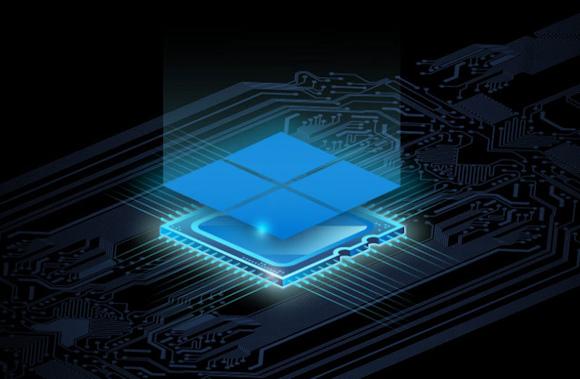A few days ago Microsoft presented its latest novelty to the world: Microsoft Pluto. Announced in collaboration with major Silicon Valley processor manufacturers, AMD, Intel and Qualcomm, this time it is not a new OS but a processor.
Un chip that promises to fundamentally change the world cybersecurity landscape.
Microsoft Pluton is a processor that uses "chip-to-cloud" security technology, previously used for Xbox and Azure Sphere IoT security.
To date, experts say, Microsoft PCs have held the most sensitive data such as encryption keys (and other data used to verify system integrity) in the Trusted Platform Module (TPM), a chip specially designed for system safety, capable of carrying out operations in a safe environment. However, this system seems to have some flaws as the chip it is connected via a communication bus which, if access to the PC is possible, represents the weak point.
To solve the problem related to the need for a secure communication channel, the new Microsoft Pluto integrates an equivalent of the TPM inside the processor itself.

Also Microsoft Pluto employs a new encryption technology, Secure Hardware Cryptography Key (SHACK), which ensures that encryption keys are never exposed outside the secure hardware.
Thanks to Project Cerberus, which works in symbiosis with the Microsoft processor Pluto, it was possible to raise the overall security level of the platform.
Another security problem faced by the new architecture is that of the distribution of updates to the firmware. Pluto in fact, it provides an upgradeable platform that implements security features end-to-end, managed directly by Microsoft, where you can run the firmware.
As you can understand, these are numerous innovations, which upset the world of information security in which, more or less consciously, we have lived in the last ten years.
I am sure the intentions are good. Trying to improve the characteristics of the security architecture to make it more difficult for outsiders to access critical information is a shared goal.
From my point of view, we will have to see what actually happens. In fact, I remember when the TPM was introduced, celebrated by everyone as a great innovation, now considered no longer suitable. In fact if you go and see, the TPM will continue to exist but will be virtualized ... will it be better?
Will there be compatibility problems with some security technologies that use it, for example Bitlocker?
And what about Microsoft's ability to centrally update the firmware of millions of processors? A function so powerful as to represent a high risk in itself, delegated directly to the owner of the Operating System ... is it appropriate? Is it wise? For Microsoft it is a solution, for the common user it is probably convenient or at least not a problem, but for a large organization?
It is necessary to reflect and deepen. Without prejudice but without claiming victory too soon ...
To learn more:
- https://www.microsoft.com/security/blog/2020/11/17/meet-the-microsoft-pl...
- https://www.01net.com/actualites/microsoft-devoile-pluton-son-processeur...
- https://www.futura-sciences.com/tech/actualites/securite-pluton-puce-mic...
- https://cisomag.eccouncil.org/microsoft-pluton-chip-to-cloud-security/
- https://unitech.ca/en/from-chip-to-cloud-endpoint-security-for-the-moder...
- https://github.com/opencomputeproject/Project_Olympus/blob/master/Projec...












